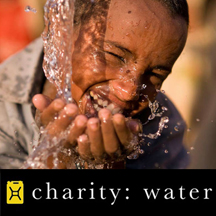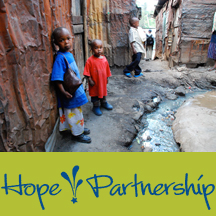The Proper Course Of Education
 Wednesday, September 9, 2009 at 10:10AM
Wednesday, September 9, 2009 at 10:10AM  MAD21
MAD21 By Jason, M.Ed., M.A.R., Headmaster
To get anywhere, you need to know two things:
- Where you are heading.
- How to get there.
That is just such a stunning and profound insight that you might need to sit down for a minute. Take a couple of deep breaths. Ready to go on?
Let’s say I want to go to New York. Well, first I need to know where New York is (165 miles northeast of Abingdon). Then, I need to know how to get there (by car, driving I-95 and the New Jersey Turnpike). With the aid of technology, I can even know that it is supposed to take me approximately 2 hours and 59 minutes to arrive in New York City from Abingdon, MD. (I’ve never actually made it in less than 3 ½ hours myself.)
Taking responsibility for our children’s education is kind of like going to New York. We need to know where we are going, which is the aim or goal of education. We also need to know how to get there, which is the path of education. The path of education is called the curriculum (or “course”) of education.
The proper aim of our children’s education is, to learn how to glorify God in all areas of life. This is a very different aim than what the world wants to sell us. The world will tell us that education is about being prepared to get good grades in college so you can get the right degree and have the right job and live out the “American Dream.” But for Christian parents, Deuteronomy 6, and the whole counsel of Scripture make it clear that a financially prosperous life is not the goal of our lives, but rather a life lived fully for God in the dedicated service of His kingdom. Whatever calling (“vocation”) God places on our lives—pastor, missionary, doctor, teacher, engineer, construction supervisor, artist—we carry this out under His guidance and for His glory.
If we know our aim or our goal, next we need to examine the course we take to get there. Normally, when we educators discuss curriculum, we jump to certain subjects and textbooks. Now I’m not going to bore you with a technical discussion of the merits of Saxon Math vs. A Beka or anything like that. Those kinds of discussions are necessary for those who need to make those kinds of specific choices, but there are more important and basic questions that every parent needs to be asking regarding the big-picture of the curriculum of their children’s training.
What steps are necessary for my child to become “educated’? What does it even mean to be “educated”? How does the Bible picture these things?
Well, for answers, the best place to turn in the Bible is to Proverbs. When we turn to Proverbs, we find these words at the opening of the book:
The proverbs of Solomon, son of David, king of Israel:
2To know wisdom and instruction,
to understand words of insight,
3to receive instruction in wise dealing,
in righteousness, justice, and equity;
4to give prudence to the simple,
knowledge and discretion to the youth--
5Let the wise hear and increase in learning,
and the one who understands obtain guidance,
6to understand a proverb and a saying,
the words of the wise and their riddles.
7The fear of the LORD is the beginning of knowledge;
fools despise wisdom and instruction. (Proverbs. 1:1-7, ESV)
Clearly this is the introduction to a book on education, a book focused on teaching students what they need to know (v. 2) in order to live a good life (v. 3). The audience for this instruction is comprised of the simple (those who have not been taught) and the young (v. 4). Yet the teaching in proverbs is also profitable for those who have been taught (“the wise” and “the one who understands,” v. 5).
What does Proverbs say first about the course of study (curriculum) it is going to unfold? “The fear of the LORD is the beginning of knowledge.” The fool, the one who says in his heart that there is no God (Psalm 14:1) and thus seeks to live life apart from God, will not progress in wisdom and instruction. So we need to begin by bending the knee before Almighty God, from whom all truth flows. Without an acknowledgement of God and the proper fear of the LORD, true education as the Bible defines it is impossible, because we have not even gotten to the starting line, the beginning, of our curriculum.
Beginning with the fear of the LORD as our starting line, our course is marked out for us with four important words found repeatedly throughout Proverbs: instruction, knowledge, understanding and wisdom. What I would like to do in the coming months is to unfold these words and examine the course of education they lay out for our children. I will begin now by just briefly touching on each of the four.
Instruction is a key word, used three times in these opening verses. Overall, it is used some 20-25 times in Proverbs. The idea of instruction denotes something that we are to receive from an authoritative teacher, most commonly our parents. This is a very important idea, and I will dedicate next month’s article to explaining it. Yet just consider how the picture of an authoritative teacher who gives instruction and a student who receives the instruction that is given is so radically different from our post-modern world’s understanding of what happens in education.
The other three words—knowledge, understanding and wisdom-- are also used repeatedly throughout Proverbs and elsewhere in the Bible, frequently in combination with one another. These words describe a progressive, developing education:
- knowledge (knowing a body of information)
- understanding (seeing connections between pieces of information or “perceiving and comprehending the nature and significance of” the knowledge you have gained)
- wisdom (which Proverbs defines as “skill for living” or, we might say, the right application of knowledge and understanding to life)
A person cannot be considered educated, according to the Bible, until he possesses all three of these. Head knowledge or even clear understanding is not enough, yet these are necessary components of a fully trained mind and life.
I hope that as we think about these things together, we will be challenged by God’s word to refine our vision for our children’s lives. I hope that, by the guidance of His word and the leading of His Holy Spirit, God will show us what it means to raise wise children, children prepared for a life of fruitful and joyful service in the kingdom. May God extend His grace to our endeavors for His glory!
 Education,
Education,  From the Heart in
From the Heart in  From The Heart
From The Heart 




Reader Comments